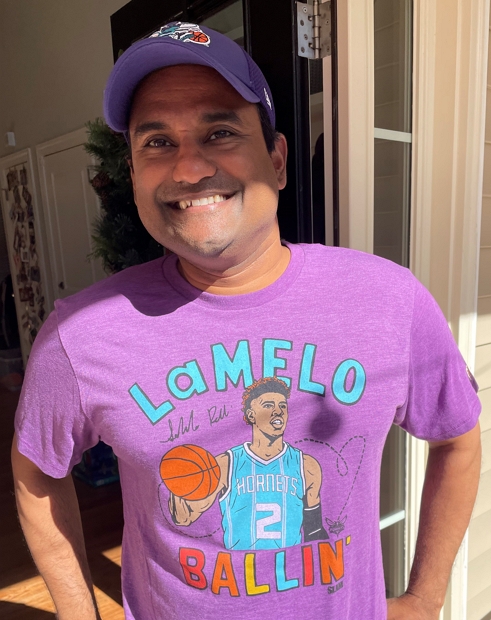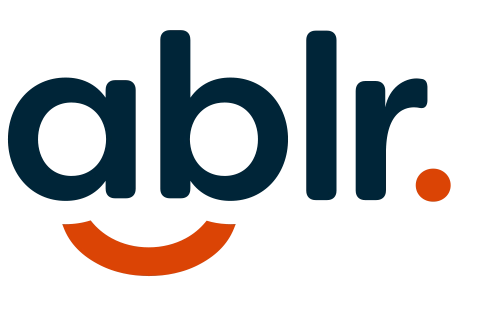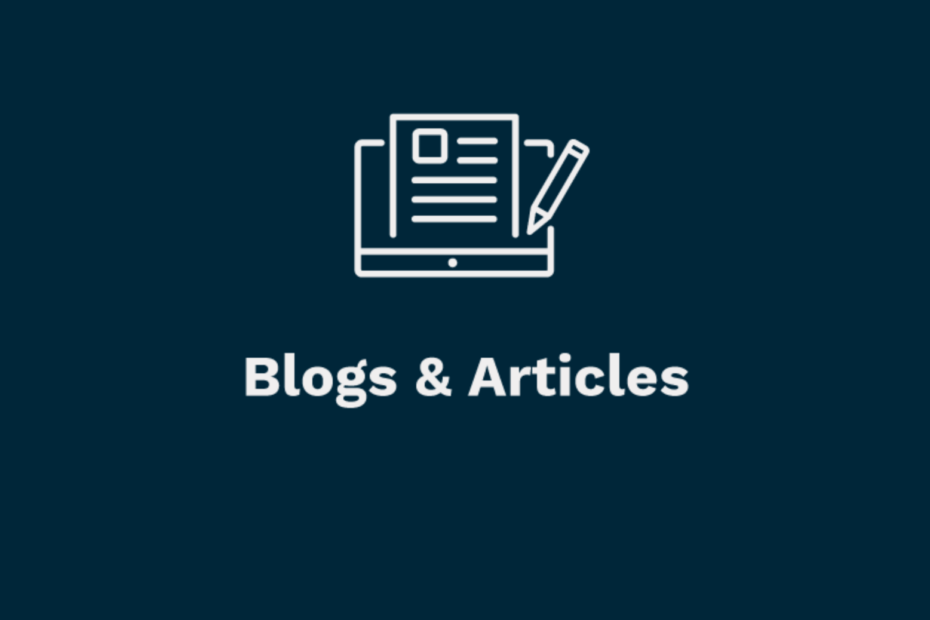By John Samuel
Growing up in North Carolina, it was almost expected that you would become a basketball fan, rooting for either the Duke Blue Devils, NC State Wolfpack, or UNC Tarheels. However, my real introduction to basketball came from the State’s professional team, the Charlotte Hornets. I was born in the heart of the Triangle, the area between the three Universities, but spent a few years in Japan and returned home when I was 12 years old. In Japan, I primarily played soccer and baseball, but when I returned, I noticed that most of the kids were playing basketball instead. When you drove through the neighborhoods, nearly every driveway had a basketball hoop – and to fit in, my dad got me one too.
As the shortest kid in class, I didn’t think basketball was for me. When it came to selecting teams during recess, my height didn’t restrict me from being picked for soccer or baseball. However, the few times I did try to play basketball, I was either picked last or not picked at all. But now, I had my own hoop and I could shoot around without fear of being excluded!rs.
In the summer of 1993, the Charlotte Hornets had just come off an exciting run in the NBA Playoffs. It was something new for the relatively new team. There was a buzz about this young team that boasted two of the NBA’s brightest young talents in Larry Johnson and Alonzo Mourning. However, there was another player on the team that grabbed my attention, the five-foot 3 inch, Muggsy Bogues.
Here was a guy, not much taller than me, who was playing in the NBA, with guys who were almost two feet taller than him! A not only was he in the NBA, but he was also excelling!
Muggsy Bogues single-handedly showed me that someone like me, also had a place in basketball. It gave me a new passion for the game. I spent every afternoon playing basketball in my driveway, and not to mention my lunch period during school playing and dreaming of one day being the first Indian American kid in the NBA. That dream never came true, but my love for the Hornets remained, even after Larry Johnson and Alonzo Mourning left for bigger market teams, and when Muggsy was traded to the Golden State Warriors for a better player. My love for the Hornets remained, even after the team moved to New Orleans, and Charlotte had an expansion team that was terrible.
Now nearly 29 years later, I have the same excitement for the Charlotte Hornets as I did as a 12-year-old fan. However, a lot has changed since then. I can now go to games in Charlotte on my own and don’t need to ask for permission to buy anything in the Hornets store! But an even bigger thing that has changed is that I’m now blind and can’t experience the game the way I use to as a kid.

Game Time
This past Friday, my High School buddies and I went to see the Hornets take on the LA Lakers at the Spectrum Center in Uptown Charlotte. Prior to the game, I reached out to my friend Brandon Lucas, who used to work for the Hornets (when they returned as an expansion team), and is a Partner at Carbonhouse, a web development agency who builds out most of the websites for Arenas around the globe. Brandon is passionate about web accessibility and had even invited me to speak at an Arena & Marketing Event Conference in Toronto in 2019, and the timing was perfect because we got to celebrate on the streets the night the Toronto Raptors won the NBA Championship!
I wasn’t sure what type of accommodations or accessibility the Hornets would be able to provide someone who was blind, but I thought Brandon would be able to connect me with the right folks.
Brandon told me to expect an email from the Hornets and to keep him posted. The day before the game, I received an email from the Hornets Customer Engagement Manager, and it read, “What ADA accommodations will you need?”
As someone who hadn’t been to a Hornets game since 1996, or to any other basketball game since losing my sight, I had no idea what type of accommodations I needed or what was available, so I didn’t know how to answer this question. What I did know was that listening to the radio broadcast was better than watching the TV broadcast, if I wanted to follow the play-by-play, so I requested a way to do this in the arena.
The Customer Engagement Manager mentioned that there was a handheld device that they provided called an Audio Listening System (ALS) at the arena and that I could also use the App. She also mentioned that if I needed anything to text her.
As I was waiting in line at the Arena, an attendee saw my cane and directed me and my friends to another entrance, which was super accessible and easy for me to navigate. I was so excited, because I felt like they understood what it took to create an inclusive experience for people with disabilities and I felt like I belonged! But that’s where it all ended.
After nearly walking all around the stadium, we finally found where I could get an ALS, so I could listen to the play-by-play of the game. To check out the system, I had to sign it out by filling out a piece of paper and leaving my ID with the attendee. The system said that it was full power, but even the attendee said they didn’t know how long it would last. After getting settled in my seat, I turned on the ALS and within 20 seconds the device died.
Luckily, I had the Customer Engagements Manager’s phone number, so I texted her and told her the ALS was dead. She immediately responded and said she would get me another one. A few minutes later, I get a text asking me to meet her outside of my gate. This meant that I would have to navigate going through the aisle and then down numerous steps, which could be challenging. So, I asked her to come up and exchange the ALS with me. Hesitantly she did, but once I turned it on, I realized that it didn’t give me the play by play, but rather repeated what was spoken on the overhead PA system, which I could already hear. It is designed for people who are hard of hearing.
She then suggested that I listen to it on my phone through the App and what I realized was that there was a delay in the game and the broadcast, so I couldn’t experience what was going on like everyone else.
This experience showed me that there was a long way to go in terms of “customer engagement management” when it came to customers with disabilities, from proper information on the website, to the training of their staff. What Muggsy Bogues taught me was that the smallest things can have the biggest impact, and if the Hornets wanted to create an inclusive experience for their fans with disabilities, they could do the following things:
- Provide more information about what type of accommodations are available, and if fans needed other things, provide a contact person.
- Prior to reaching out to my friend Brandon for help, I called the Hornets customer service, and I got a call back from someone in Ticket Sales, and they told me they couldn’t do anything. Luckily, I had connections to get in touch with the Customer Engagement Manager, but not everyone has this. So, make sure that people requesting disabilities have a contact person they can reach out to if they have challenges before coming to the game, and while they are in the arena.
- Have the staff go through disability etiquette training
- It’s important that all staff that engage with customers go through some sort of disability inclusion training and understand how to communicate and interact with customers with disabilities. This is the first step in building empathy for the challenges that some fans may face and the reason we developed our own training modules.
- Make sure that the accommodations and assistive technologies that you offer are working
- Do continuous checks of the systems and processes that you claim are ADA compliant. This all changes when you stop thinking about accommodations and accessibility as compliance issues, but rather fan engagement.
- Invite and encourage fans with disabilities to come out to games
- Your fans with disabilities want to feel like they belong, so invite them to come out, starting with your neighbors at Metrolina Association for the Blind! We are vital members of the communities that you represent and ask for our feedback. Continuous open dialogue will not only help you improve the experience for fans with disabilities, but you will see that it will also help those without. Not to mention, you will build a fan base who is loyal, and will stick with you, even when you have more losing season than not…
Reach out to the Ablr team and learn how we can help improve your fan experience, to your employee experience, and truly be inclusive of all people!!

